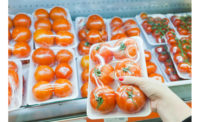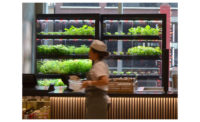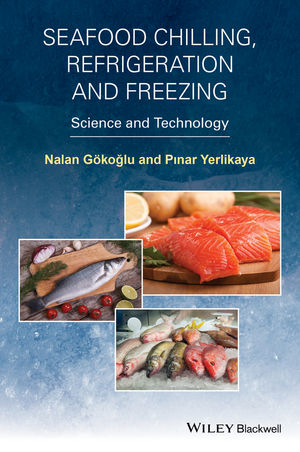Marks & Spencer, infarm partner to bring urban farming to London stores
Infarm’s farming technology combines highly efficient vertical farming units with IoT technologies and machine learning to deliver a controlled eco-system.

Marks & Spencer (M&S), London, partnered with infarm, Berlin, to deliver a range of fresh produce grown and harvested in a selection of M&S’ London stores.
The indoor farm will feature a range of fresh herbs, including Italian, Greek and Bordeaux Basils, Mint, Curly Parsley and Mountain Coriander, with infarm vertical farming units set to roll out to another six London stores by the end of the year.
Infarm’s farming technology combines highly efficient vertical farming units with Internet of Things (IoT) technologies and machine learning to deliver a controlled eco-system with the optimum amount of light, air and nutrients. Each unit is remotely controlled using a cloud-based platform, which learns, adjusts and continuously improves to ensure each plant grows better than the last one.
“Infarm’s innovative farming platform is a fantastic example of what can happen when passionate agricultural, food and technology experts work together. We operate as part of a complex global food supply chain, and want to understand the emerging technologies that could help provide more sustainable solutions, whilst also delivering fantastic products with exceptional taste, quality and freshness for our customers,” says Paul Willgoss, director of food technology, M&S Food.
“London represents many of the sustainability challenges that people will experience in cities over the next several decades,” adds Erez Galonska, co-founder and CEO of infarm. “By offering produce grown and harvested in the heart of the city, we want to practice a form of agriculture that is resilient, sustainable and beneficial to our planet while meeting the needs of urban communities—first in London, and in the future cities across the United Kingdom."
Each in-store farm unit uses 95% less water and 75% less fertilizer than traditional soil-based agriculture, and is capable of producing the equivalent of 400 square meters of farmland, resulting in a more sustainable use of natural resources and ensuring zero pesticide use.
The partnership will be supported by the construction of a series of infarm distribution centers in and around London. These central hubs will provide the seedlings for each unit, which are then grown in store. Infarm farmers will visit the stores at least twice a week to harvest and add new seedlings to the farm.
Looking for a reprint of this article?
From high-res PDFs to custom plaques, order your copy today!









